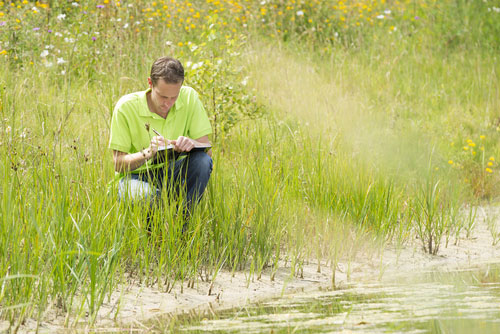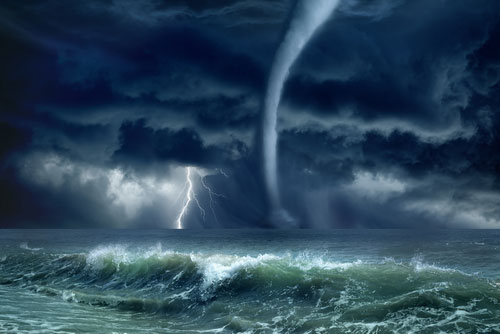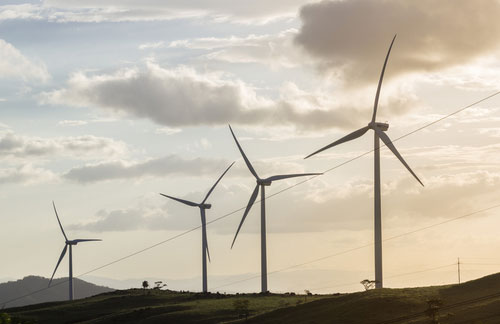What is climate change? Is it the same as global warming? When did climate become a hot topic in the world’s agenda? What are its main causes and consequences? Is it a lie? Find everything about climate change below! Please use the index to find out what you’re looking for.
Simple Definition Of Climate Change
Climate change is the global phenomenon of climate transformation characterized by the changes in the usual climate of the planet (regarding temperature, precipitation, and wind) that are especially caused by human activities. As a result of unbalancing the weather of Earth, the sustainability of the planet’s ecosystems is under threat, as well as the future of humankind and the estability of the global economy.
Official Definition Of Climate Change
NASA’s definition of climate change says it is “a broad range of global phenomena created predominantly by burning fossil fuels, which add heat-trapping gases to Earth’s atmosphere. These phenomena include the increased temperature trends described by global warming, but also encompass changes such as sea-level rise; ice mass loss in Greenland, Antarctica, the Arctic and mountain glaciers worldwide; shifts in flower/plant blooming; and extreme weather events.”
Climate Change Definition vs. Global Warming Definition
According to the US Geological Survey, global warming is just one aspect of climate change. In fact, they say that global warming refers to the rise in global temperatures due mainly to the increasing concentrations of greenhouse gases in the atmosphere. On the other hand, climate change refers to the increasing changes in the measures of climate over a long period of time – including precipitation, temperature, and wind patterns.
Following the same line of thought, according to Climate.Gov, global warming refers only to the Earth’s rising surface temperature, while climate change includes warming and the “side effects” of warming—like melting glaciers, heavier rainstorms, or more frequent drought. Ultimately, this means that global warming is one side of the much larger problem of human-caused climate change.
- Related:
Climate Change And Coronavirus: Is Coronavirus Bad For Ecology And The Climate?
Unfortunately, coronavirus is likely bad news for ecology in the long-term because it is tied to a dysfunctional economic system. We explain why, here.
Moreover, during these uncertain times, we can’t forget about the climate crisis. We will gradually add our new pieces that connect climate change and sustainability with the current coronavirus outbreak. You can also make sure you don’t miss a beat by subscribing to our monthly newsletter.
-
- Coronavirus And Sustainability: 6 Ideas To Act Sustainably Without Leaving Your Couch
- Coronavirus: More Than State Socialism, The Economy Needs A Meaningful Purpose
- Coronavirus Quarantine: 3 Movies About Minimalism You Should Watch
- Why Is It Important To Support Local And Small Businesses During Coronavirus? So They Can Stay Sustainable.
- Coronavirus: 8 Sustainable Ideas Of What To Do While At Home
- How The Coronavirus Crisis Is Showing Neoliberal Capitalism Needs To Change
- Coronavirus: 5 Unconventional Tips To Boost Your Immune System
- “Normal” Is Not The Best Place To Return After Coronavirus
Who Is Responsible For Climate Change? And Who Studies It?

When we talk about climate change, we are often talking about the increase in temperatures linked to industrial activities and in particular the greenhouse effect. Therefore, we sometimes speak of global warming, which is said to be “of anthropogenic origin”. Ultimately, the causes of global warming (at least at its current rate) are not natural but driven by the human economy and industries.
Many scientists are studying this phenomenon and trying to understand how activities of human societies are responsible for this heating. These scientists are grouped together in the IPCC (International Group of Experts on Climate), and they regularly publish reports studying the evolution of climate change, such as the one published in late 2018.
First Discoveries Of The Greenhouse Effect And Definition Of Global Warming
The first assumptions about the greenhouse effect were made by scientist Jacques Fourier in 1824, whose work was followed by several scientists who tried to quantify this phenomenon, like Claude Pouillet, John Tyndall and Svante Arrhenius. In fact, Arrhenius was the one who conducted the first experiment that accurately validated and quantified the greenhouse effect, at the end of the 19th century. He discovered that an air rich in carbon dioxide retains more heat from solar radiation leading to an increase in air temperature.
In the end, he concluded that if large quantities of carbon are released into the atmosphere (because of industrial activities that burn coal), the air will be charged with CO2 and more heat will be retained. By that time, the first estimates of temperature increases made by Arrhenius and other scientists were that if the greenhouse gases trapped in the atmosphere doubled, the average temperature of Earth would increase by 5º Celsius. In 1901, Gustaf Ekholm used for the first time the term “greenhouse effect” to describe this phenomenon.
For decades, these discoveries were not taken seriously in the scientific community. At that time, many experts believed that nature could self-regulate and that the impact of man was minimal. Notably, many scientists thought the excess CO2 would be absorbed by the ocean anyway, which is true within specific CO2 limits. Nevertheless, the thesis that global warming was linked with the greenhouse gases (including carbon dioxide) was proven to be true and validated in the 1940s by Gilbert Plass. Nowadays, with modern technologies, there is solid evidence that the concentration of greenhouse gases in the atmosphere affects the ability of the air to retain infrared radiation and heat.
- Related:
Growing Awareness About Global Warming
In the 60s, several scientists showed the assumptions on the greenhouse effect were actually real. For what matters, Charles David Keeling proved, for instance, that the concentration of CO2 in the atmosphere was gradually increasing thanks to its measurements near Hawaii.
By its turn, Roger Revelle also proved that the carbon gases released by burning fossil fuels were not immediately absorbed by the ocean, as was previously thought. This discovery accelerated scientists’ worries about climate change and as a result, society and politicians slowly began thinking about these issues as a possible problem in the future.
A decade later, in 1971, during the first Earth Summit, the definition of global warming and its consequences were broadly discussed and a year later, in 1972, John Sawyer published a scientific report highlighting even more clearly the links between global warming and the greenhouse effect.
For over a decade, evidence of climate change has been accumulated in the scientific community until in the mid-1980s, the world’s 7 largest economic powers (the G7) called on the UN to create a group of experts to study this issue. This was the first time there was a real consideration and a true definition of climate change as a public problem by international institutions.
The First IPCC Reports On Climate Change
The Intergovernmental Panel on Climate Change (IPCC) was created in 1988 with the purpose of studying the evolution of the phenomenon of climate change and its consequences. It brought (and stills brings) together hundreds of scientists, climatologists, geologists, oceanographers, and biologists, but also economists, sociologists, engineers and other specialists in various fields – with the goal of having a global vision of this phenomenon. The IPCC is structured in three working groups:
- The first group studies climate change as a phenomenon: they focus on the process and its magnitude;
- The second group is specialized in the consequences of climate change: they’re interested in the vulnerability of ecosystems and societies, as well as how the planet reacts and adapts to climate change;
- The third and last group is responsible for studying the ways of fighting against climate change.
The IPCC made its first report in 1990 and they kept making new ones periodically until they published their last report in October 2018 that focuses on the impacts of a temperature increase of 1.5 °C above pre-industrial levels, its GHG emission pathways and was built in an attempt to address policy makers more directly.
Overall, in these reports, the IPCC scientific community analyzes the causes of climate change and its impacts on the ecosystems and on society by developing predictive models. These models and forecasts are then used by governments and businesses, helping them to put in place strategies to combat climate change or adapt to it.
The Consequences Of Climate Change

Thanks to the work of the IPCC and other groups of scientists working on the definition of climate change, we now better understand the consequences of this phenomenon in our lives. In the minds of many, climate change is a relatively distant problem that simply implies that it will get hotter. Nevertheless, the consequences are much deeper and should be taken more seriously.
- Related:
The Consequences Of Climate Change On The Planet’s Ecosystems
An increase in temperature due to global warming it’s not only about a heat increase that can be felt by humans or glacial ice melting – it has the potential to affect the planet’s entire ecosystem. As we have been watching in many different countries, from the US (California) to India or South Africa, the weather is getting disruptive. Extreme weather events are more regular and their patterns are changing – they’re more intensive, aggressive, and with more energy. This means more storms, floods, cyclones, and droughts will take place over the next years.
At the same time, the regulating capacity of oceans is also being affected by an increase in temperatures. If global temperatures increase dramatically, ocean levels will not only increase – they will also be facing the ecological challenges of oceanic acidification and deoxygenation. At the same time, forest areas (e.g. Amazon rainforest), fragile ecosystems (e.g. coral reefs) and biodiversity (e.g. corals, insects and mammals) are also under threat.
The Consequences Of Climate Change On Society And On The Economy
Furthermore, climate change is already challenging and can further challenge our societies. With the increase in temperatures in some countries, especially in Equatorial regions, the flow of climate refugees is changing and increasing, putting pressure in other countries to host them, help them strive and overcome political barriers.
The reasons for this move have to do with natural resources, such as drinking water, that are getting more limited and many crops and livestock that are unlikely to survive (affecting locals but also the global economy of the several industries that rely on raw materials) in specific locations because of the temperature being too hot or too dry, too cold or too wet. And as it turns out, studies say that the wealthiest countries of the world will be the ones experiencing fewer changes in their local climate compared to the poorest regions if the global average surface temperatures reach the between 1.5º and 2º Celsius.
The Consequences Of Climate Change On Businesses
Finally, businesses are also likely to be affected by climate change. Indeed, in a context where the climate is changing, companies need to be aware of the risks that they may face and be prepared to deal with them by developing CSR strategies that evaluate the impacts they may suffer. Events such as damaged crops, the loss of infrastructures, unexpected changes in market stocks, investors that ask for sustainability reports and the growing expectations of society for business to be transparent are variables to keep an eye on.
- Related:
- Impact Measurement Is Good For Business. And For Sustainability
- 5 Tips For Organizations To Develop Their CSR Strategy In 2020
How To Fight Climate Change
To fight climate change, we must first reduce our greenhouse gases (GHG) emissions. To accomplish this, the first step is to embrace renewable energies that are naturally replenished on a human timescale, such as sunlight, wind, rain, tides, waves, and geothermal heat, and avoid creating energy by the burning of fossil fuels. As well, besides swooping the types of energy we produce, we must also make everything more efficient, because even if the energy comes from a renewable source, it still won’t be carbon neutral and will still contribute to the ozone depletion.
We need to adapt our lifestyles to overcome these growing challenges that climate change is bringing. For this to happen, we should start to create a worldwide culture of sustainable development, where the energy is wised wisely and efficiently, where a circular economy is a strong bet, as well as durable and eco-friendly products. One thing is for sure, we need to choose responsibly the products we buy because our demand as consumers influences what we are supplied with.
- Other actions you can take to fight climate change:
- 5 Steps You Can Take To Help Stop Deforestation
- If Using A Car, Taking At Least 3 People With You
- Choose An Ecological Diet That’s Not Meat-Based
- Choose Clothes Carefully And Supporting The Slow Fashion Movement
- Use Photovoltaic Panels If You Can
- Turn Your Office Paperless
- Learn About Regenerative Agricultural Practices
- > More ideas and suggestions in our article on sustainability and in our sector: responsible consumption
Climate Change: Myth Or Reality?
Like many social and scientific problems, climate change has been controversial from the start. Some scientists and critics have questioned climate change. They are called climate-skeptics. Several arguments are invoked, for example:
“Climate Change Does Not Exist, It’s A Lie”
This argument, often used by skeptics, would make climate change a lie, invented by states, or world elites and the media. No evidence or explanation has been provided to support this argument.
“Climate Change Is Natural, It Does Not Matter”
This argument is often put forward by climate-skeptical scientists to question the media attention that climate change enjoys. Their idea is that climate change is a natural phenomenon, normal and cyclical, and there is no need to worry about it.
However, the work of Keeling or Revelle, and then the work of the IPCC and hundreds of newer independent works, have proved that this argument is false, and that climate change is indeed a phenomenon of human origin (as the temperatures have been rising at abnormal rates since the industrial revolution) and that it is dangerous for the world’s ecosystems and societies.
The Human Origin Of Global Warming: Greenhouse Gases (GHG)
Some scientists have also questioned the human origin of global warming, explaining that CO2 released into the atmosphere by human activities does not really affect the climate nor the ecosystems of Earth. They argue that these gases are either regulated by ecosystems, that they are not released in sufficient quantities to have an impact, or that other gases (such as water vapor) have a greater impact on ecosystems.
Although all these positions are partly true, they do not call into question the human origin of global warming. Thus, CO2 is well absorbed in part by the ocean and by plants, but not fast enough to be regulated due to the huge contribution of human activities.
“We Do Not Really Know How The Climate Works. The Same Happens With Climate Change”
Other climate-skeptics argue that because climatology (the science that studies climate) is very complex and has many factors to consider, it is difficult or impossible to predict the consequences of an event such as the increase of CO2 concentrations in the atmosphere. These critics question the reliability of the IPCC models up to some degree and therefore their predictions.
Although it is true that climatology is a complex science, the predictions made so far about temperatures rising, ocean acidification and the weather consequences of climate change have proved to be rather close to reality.
The Scientific Consensus On Climate Change

In the end, the overwhelming majority of global scientists in all relevant fields agree on the causes of climate change and most of its consequences on ecosystems and society. Scientifically speaking, there is no doubt about the existence of global warming and climate change. It is now time to find out what actions will be taken at the political and social spheres to make our world more resilient and fight climate change.
Youmatter’s News On Climate Change And Global Warming
To find out more news related to climate change and global, we invite you to visit our Planet Section
[Credits to Shutterstock on climate change; climate change definition research; climate change nature force; climate change temperature people; climate change renewables grid]